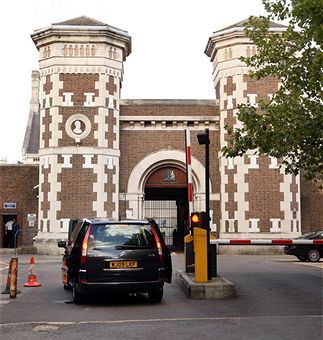 It was unlikely that the Coalition could have played for any more time before lifting
the ban on prisoner voting. That was the tactic played by the previous Government, but now it seems the will of Strasbourg will prevail. But the policy is wildly out of step with public
opinion, hard to justify and difficult to administer – it is also another example of how our own Parliament and domestic courts have been undermined.
It was unlikely that the Coalition could have played for any more time before lifting
the ban on prisoner voting. That was the tactic played by the previous Government, but now it seems the will of Strasbourg will prevail. But the policy is wildly out of step with public
opinion, hard to justify and difficult to administer – it is also another example of how our own Parliament and domestic courts have been undermined.
The public are opposed – usually on principle – to granting additional privileges to serving prisoners, especially when they have done little or nothing to earn it. They are
against voting rights in particular on the grounds that it is one of the rights that lawbreakers give up by virtue of their crime. Penal reformers on the other hand have pursued this policy largely
because it fits their conception of what a rehabilitation agenda should encompass. Purposeful prisons where offenders are given an opportunity to reform is a noble ambition, and effective
rehabilitation to reduce high rates of reoffending and prevent future crime is a really important agenda. But there is no empirical evidence that prisoners are less likely to reoffend if they
have had the opportunity to vote.
But Strasbourg has ruled that the issue is about ‘rights’; and prisoners have the right to vote by virtue of being citizens. But prison, as a concept, traditionally means both
loss of liberty and loss of certain liberties. Those in favour of prisoner voting maintain that criminals, like the rest of us, have civic rights that they do not lose by virtue of becoming a
prisoner, but these rights are typically indivisible – if everyone has the right, then all prisoners have the right. But some advocates seem to want it both ways, lifting the blanket
ban, but keeping lifers disenfranchised all the same. It cannot both be a right, and yet not be offered to everyone.
There are also major practical difficulties. Officials are desperately seeking ways of lifting the ban without enfranchising serving murderers, rapists and other violent criminals. But
once you start granting these new privileges on the basis of certain categories of offender or certain lengths of imprisonment, then the government opens itself up to years of litigation and human
rights challenges from thousands of prisoners who fall on the wrong side of that line.
Second, even if – like Australia – you can create a system of voting rights based on length of time served, there will be major problems with the administration of any poll in a prison.
The nature of prison regimes does not lend itself to an environment where individuals can express their political preferences safe from undue influence and intimidation. Prisoners’
votes would not all be counted in one constituency for obvious reasons, but any provision for postal voting opens up big risks of fraud, not to mention duress and staff corruption.
The European Court of Human Rights (ECHR) in Strasbourg was only able to pass judgement on this matter because of an individual case lodged by an ex-lifer who had pursued his claim relentlessly for
years. Rather than being determined by a free vote in Parliament, or by the judgement of our own courts, an individual litigant was able to appeal over the heads of the British public, the
Government and the judiciary to an unaccountable foreign court. The result is a major change to national policy that did not originate here. This is not democratic.
Prior to changes enacted by the Wilson Government in the 1960s, the United Kingdom’s membership of the ECHR did not entail any mechanism for individual right of petition to Strasbourg.
As Lord Hoffmann has argued, and a forthcoming Policy Exchange report will set out, it could be possible to return to the status quo ante and remain a Convention member but limit individual
challenges from going to Strasbourg. Now we have our own Supreme Court, that institution would become the final arbiter in cases like this and they would be taken out of the ambit of the
Strasbourg justices. At least in that way, rulings would originate here and Parliament could then take a view. More than anything else the prisoner voting case proves why it is time for
our own Supreme Court to be supreme.
Blair Gibbs is the Head of Crime & Justice at the think tank Policy Exchange
Blair Gibbs
Prisoner voting rights are undemocratic






Comments